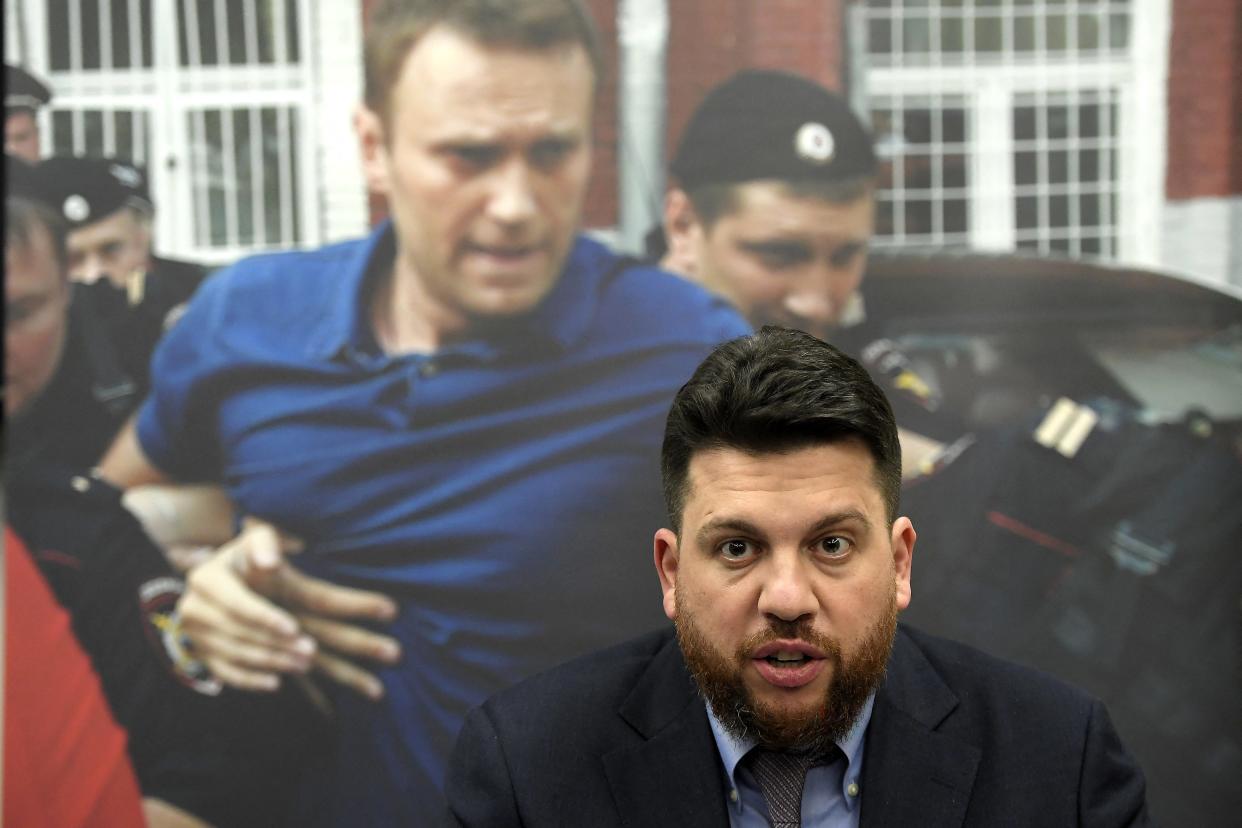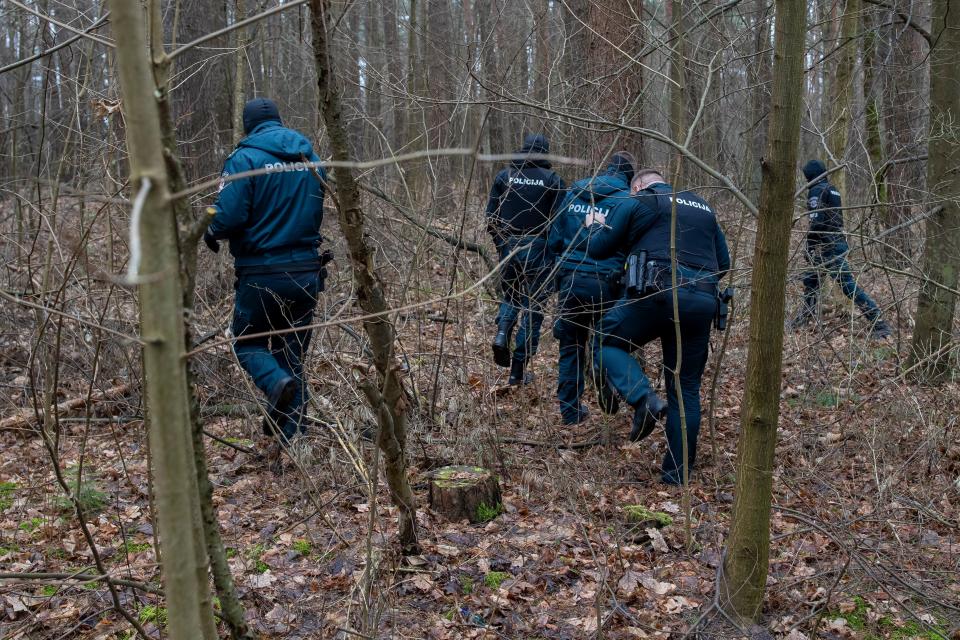'Greetings from Putin's henchmen': Alexei Navalny aide attacked with hammer and tear gas

A long-time ally of late Russian opposition leader Alexei Navalny was attacked with a hammer and tear gas while in his car outside his home near Lithuania’s capital Vilnius, Navalny spokesperson Kira Yarmysh said late Tuesday.
The assailant's identity and the motive for the assault on Leonid Volkov were not clear, but it came about a month after Navalny’s unexplained death in a remote Arctic penal colony. A fierce critic of Russian President Vladimir Putin, Navalny was serving a 19-year prison term on extremism charges widely seen as politically motivated.
The attack also comes ahead of an election this weekend in which Putin is expected to win his fifth term as president in a carefully stage-managed vote marked by extreme censorship and a near-total crackdown on opposition. It would mark Putin's third consecutive six-year term.
Navalny, a thorn in Putin's side, dies: What does it mean for Russia?
Yarmysh and other members of Navalny's Anti-Corruption Foundation, which has an office in Vilnius, posted pictures on social media of Volkov, 43, with what appeared to be a bloody leg and bruising to his temple.
"This is a clear political attack, there is no doubt," said Ivan Zhdanov, another Navalny ally.
There was no immediate reaction from the Kremlin.
Police in Lithuania launched a criminal investigation. Gabrielius Landsbergis, Lithuania’s foreign minister, called the attack "shocking" and said the "perpetrators will have to answer for their crime.”
Leonid Volkov vows to 'not give up'

Volkov was in charge of Navalny's election campaigns when he unsuccessfully ran for mayor of Moscow in 2013 and then attempted to challenge Putin in Russia's 2018 presidential vote.
Like many Russian opposition figures, Volkov left Russia several years ago under pressure from the authorities. He stepped down as chairman of Navalny's Anti-Corruption Foundation last year after it emerged that he called for the European Union to drop some sanctions on Russian oligarchs imposed in response to the war in Ukraine.
But Volkov has still been helping lead the foundation's anti-corruption investigations into Russian officials, organizing livestreams of major events and has played a big role in anti-Putin activism from Lithuania.
A port city, a steel cage, a palace: The steps that made Putin 'the richest man in the world'
The attack took place shortly after Volkov arrived at his home near Vilnius.
"We will work, we will not give up," Volkov said in a short video posted on Telegram on Wednesday.
The video shows Volkov with his arm bandaged and in a sling.
He said his arm was broken and his leg hit 15 times with a hammer.
"It was a typical gangster greeting from Putin’s henchmen, from bandit St. Petersburg," he said, an apparent reference to Putin's time as deputy mayor in Russia's Second City in the 1990s when it was overrun by criminality.
Thorns in Putin's side forced to leave Russia
Putin has criminalized virtually every form of dissent against him and his war in Ukraine.
Russians risk jail sentences of five to seven years, for example, for "discrediting" the army. They can be arrested for making offhand anti-Kremlin remarks or for their social media posts.
In fact, many thorns in Putin's side have either fled Russia for the U.S. or Western Europe. Hundreds of thousands of young Russians are estimated to have left Russia since Moscow's full-scale invasion of Ukraine.
Russians escaping Putin's war: They find a new home – and a moral dilemma
Russia’s exiled opposition is now effectively led by Aleksey Navalny’s widow, Yulia Navalnaya. She and others have called on Russians to show up en masse to voting booths this weekend to overwhelm election officials.
Vladimir Ashurkov, a London-based Navalny friend and associate, said in addition to its investigations and fundraising for political prisoners, much of the Anti-Corruption Foundation's work is focused on advising activists inside Russia on how to safely put up anti-war posters and vandalize military recruitment offices. It coordinates volunteers outside Russia to call people inside Russia to talk about the war and persuade them to vote.
Ashurkov described this as a "long-term strategy" to defeat Putin.
But some voices inside Russia have questioned how effective the work of those based overseas really is.
"The exiled opposition cannot influence anything in Russia, since many of them have been prosecuted as 'extremists' or 'terrorists' and it annoys me when some of our critics abroad lecture us here on how to fight the bloody regime," said Boris Vishnevsky, a Russian opposition politician in St. Petersburg.
Vishnevsky is planning to boycott Russia's presidential vote.
Still, Sam Greene, a professor of Russian politics at King's College London, said that inside Russia the opposition has "talked itself into believing that they are powerless against a highly authoritarian regime."
However, he said "history is full of examples of nonviolent movements" that have been successful at ousting unpopular leaders and governments. "The idea that unarmed people can't bring down armed people is false."
This article originally appeared on USA TODAY: Alexei Navalny ally Leonid Volkov attacked with hammer, tear gas
